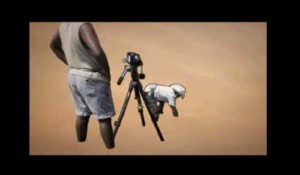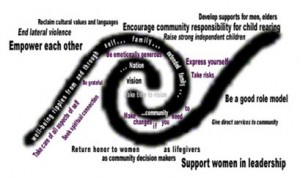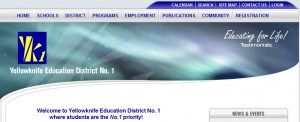Category — Module 2
Educational Technology Clearinghouse
* A compilation of a variety of links to adult education materials/ other resources…divided by general categories and research categories
* Not much to say about the look of the site, except that it is clear and organized.
* EXCELLENT START to research on adult education topics
October 21, 2010 No Comments
marionthatcher.blogspot.com
* a blog with a specific focus on Adult Education and Technology
* Marion Thatcher is “Keeping an eye on technology for the adult education classroom and beyond”.
* contains links to many useful educational tools to use in a classroom.
– such as Storybird, asite that uses donated art to for students to use to tell a visual/media story
– could be used to help students gain deeper knowledge of a concept taught in class if they have an assignment that has them regurgitate the info from class into a visual format to share with other students.
* This blog site will help any teacher looking for tech ideas for teaching tools to help engage the techno savy students these days.
October 21, 2010 No Comments
UNESCO Teaching and Learning for a Sustainable Future
* United Nations Decade of Education for Sustainable Development
* Aim is to promote and improve the integration of Education for Sustainable Development into the educational strategies and action plans at all levels and sectors of education in all countries.
* Multimedia teacher education programme = 100 hours
* Can be accessed and used in a great many ways by teachers, student teachers, teacher educators, curriculum developers, education policy makers and authors of educational materials: FOR FREE
* This website is valuable for people wanting to research ways to improve their skills in a specific area – perhaps it can be twisted to focus on aboriginal adult education somehow…am looking into it further.
October 21, 2010 No Comments
Science and Development Network
* Is a not-for-profit organisation dedicated to providing reliable and authoritative information about science and technology for the developing world.
* Free-access website, written mainly by Southern-based contributors
* Regularly add dossiers, spotlights, ‘quick guides’ and ‘news focuses’ on specific subjects, in addition to a growing amount of regular news coverage.
* Raising awareness of indigenous knowledge in science and technology education by Zane Ma Rhea
* Helpful if researching for cross curricular materials to teach at a highschool level
External Link listed = UNESCO Teaching and Learning for a Sustainable Future
http://www.unesco.org/education/tlsf/index.htm
http://www.scidev.net/en/policy-briefs/raising-awareness-of-indigenous-knowledge-in-scien.html
October 21, 2010 No Comments
i-tec: Indigenous people’s technology and education center
The website for i-tec is an infomation site that explains how they help indigenous churches. Their focus is on enabling indigenous churches to overcome the technological and educational hurdles that stand in the way of their independence. “Technology” used by i-tec are not necessarily computers or distance learning but actually equipment and training to help remote indigenous groups with little or no access to transportation, dentistry, medical care or even the know-how to maintain equipment on their own. The links involved are internal and only go to other information pages, a contact list, a store and a donation page. This site would be of use to anyone researching the types of technology being used in remote indigenous locations.
October 21, 2010 No Comments
CBC Aboriginal portal
In 2007, one of the focal points in CBC Television’s diversity plan was a web platform that tried to showcase stories and programs on Aboriginal life, issues, and artistic expression that have been produced by, or in association with CBC Television and Radio. As one of the CBC’s diversity strategies, the portal provides “better access to the volume of programming produced by the CBC which relates to Aboriginal life in Canada, creating a resource tool for schools, the larger community as a whole and Aboriginal communities in particular.”
What I found empowering about this website for Aboriginal peoples is the CBC’s intention to develop internships related to the site that will provide budding web developers with an opportunity to get to know the CBC, and its content. The website acts as connective fibre for other CBC initiatives that look to improve our capacity to connect with, and reflect Canada’s Aboriginal people. The portal was launched on June 21, 2007 and simply called “CBC Aboriginal.” The official website launch coincided with National Aboriginal Day on June 21st, 2007 and brought together CBC’s coverage of aboriginal issues on Television, Newsworld, Radio and CBCNews.ca.
October 19, 2010 No Comments
Traditional Knowledge Revival Pathways
Looking for more information about place-based education, I came across this You Tube video describing the importance of securing traditional knowledge for the benefit of community and country. The 5 minute, 36 second video was created by Luke Stanford, narrated by Victor Steffensen and filmed in Australia.
Some of the themes discussed are:
- The importance of showing a visual of what the elders are trying to explain
- Understanding that different forms of language + body + verbal are all significant and must be preserved
- That Aboriginal knowledge is not recognized by the mainstream and therefore an even greater sense of urgency to preserve this knowledge
- A sustainability theme where we’re not just saving this knowledge for Aboriginal people but for all – i.e. Aboriginal knowledge as a means to better understand global warming and other environmental issues
- People are currently detached from the environment but in reality “Man is not different from nature, Man is nature”
October 18, 2010 No Comments
Living Well: Aboriginal Women, Cultural Identity and Wellness
This research project by an Aboriginal Women’s Health Research Committee, supported by Prairie Women’s Heath Centre of Excellence (PWHCE) was designed to advance the current understanding of the positive impact of cultural identity on the wellness of Aboriginal women in Manitoba. In addition, an additional objective was to extend understanding of the ways that Aboriginal women have sought to heal themselves and their families through cultural values, teachings and knowledge.
The study included a literature review of the current research followed by group discussions and individual interviews with the women in the study. The study concluded that the women in the study take care of their physical and emotional health by maintaining balance between all aspects of their lives, including the physical, mental, emotional and spiritual. The approach is very reminiscent of the medicine wheel approach to holistic health. The findings concluded that the women’s identities are inseparable from their family, history, community, place and spirituality, and understood in the context of their whole lives. The approach/findings were reminiscent of Lee Brown’s ideas around the emotional health and the whole person.
October 18, 2010 No Comments
Yellowknife Education District No. 1
As a means to better understand how culture-based education is being implemented, I researched the Northern community of Yellowknife to view their school district page. The district Website reports that Aboriginal students account for approximately 25% of enrolment in Yellowknife Education District No. 1 and that they are spread out across eight schools.
The school district lists their YK1 Strategic Direction as:
To ensure that students and staff are engaged in, and value Aboriginal Language and Culture-Based Education.
The following strategic goals indicate how the strategic direction will be implemented:
- To support staff to integrate culturally relevant learning opportunities into instructional programming
- To build capacity to increase the human resource base for the instruction of Aboriginal Language and Culture-Based programs
- To develop and support programs that promote the social and emotional well-being of Aboriginal students
- To promote and support Aboriginal Language and Culture- Based Education for all students
- To strengthen relationships with the Aboriginal community
- To revise Board procedures for the delivery of Aboriginal Education
October 18, 2010 No Comments
MAEI and Club Amick
In my travels as an educational consultant, I have come across two non-profit organizations that focus on Aboriginal initiatives and helping kids.
The Martin Aboriginal Education Initiative was started by Paul Martin, former prime minister of Canada. The goal of the organization is to support initiatives that improve elementary and secondary education for Aboriginal people. They have a literacy project in effect at Kettle and Stony Point Hillside School and a math initiative at Walpole Island Elementary, both in Southwestern Ontario. A Promising Practices website, along with an accounting and a youth leadership project round out their current project portfolio.
http://www.maei-ieam.ca/index.html

The second initiative concerns putting books into the hands of young Aboriginal students and allowing them to build a home library with the hopes of developing a love for literacy. The students also receive newsletters addressed to them at their home address with activities and information. The initiative was started by James Bartleman (former Lieutenant Governor of Ontario) and Michaelle Jean (former Governor General of Canada).

October 18, 2010 No Comments



